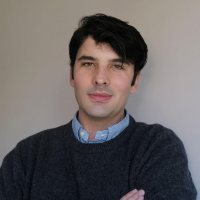Boris Vazquez-Calvo

Boris Vázquez-Calvo is an assistant professor of language education (English and Spanish) and a recognized expert in digital literacies, informal language learning, and technology-enhanced language education. His research explores how artificial intelligence, online communities, and digital platforms shape language learning, pedagogical practices, and the evolving identities of language learners and educators in multilingual and multicultural contexts. With more than 40 publications and over 60 conference presentations, including invited keynotes, his work has significantly contributed to understanding the intersections of digital technologies, language learning, and communication.
As Principal Investigator, Boris leads multiple publicly funded research projects that examine the intersections of digital technologies, literacies, and language education. His most recent project, DEFINERS: Digital Language Learning of Junior and Preservice Language Teachers (72,500€, TED2021-129984A-I00, Spain’s National Research Plan), investigates how preservice language educators engage with AI-powered tools, digital platforms, and online social networks to develop their professional skills and digital autonomy. The project provides critical insights into digital technologies and AI’s role in self-directed learning, digital autonomy, and identity, from the perspective of preservice teachers.
Beyond DEFINERS, Boris has spearheaded SEGUE: Social Media and Video Games for Language Learning and Teaching (4,200€, Research Plan UMA, 2022-2024), which examined how social media and gaming environments foster language development and literacy practices. Additionally, his past postdoctoral project, Gaming as Literacy (110,000€, Xunta de Galicia), explored how video games function as academic and vernacular literacy practices, emphasizing informal learning in online gaming communities fueled by gaming as a fan practice.
His research also extends to memes and digital humor in language teacher education, examining how humor and multimodal communication shape identity construction and pedagogical reflection. His work on AI-driven speech technologies in pronunciation training has contributed to discussions on self-regulated learning and AI-assisted feedback in teacher training programs. He is now researching AI-driven chatbots to determine the extent to which language teacher students co-construct specialized knowledge through human-AI interaction.
Currently, Boris is transitioning from the University of Málaga to the University of Seville, where, in July 2025, he will assume a prestigious, research-focused, tenure-track postdoctoral position in language education, funded by Spain’s and the EU’s research agencies under the Ramón y Cajal grant (RYC2023-043502-I).